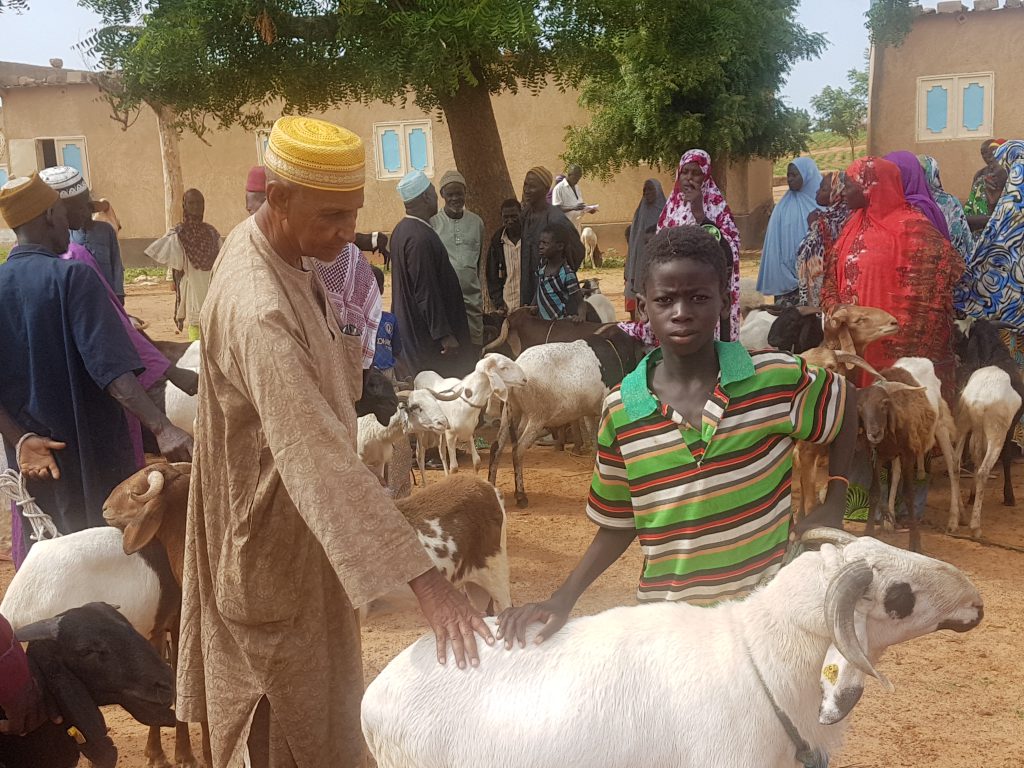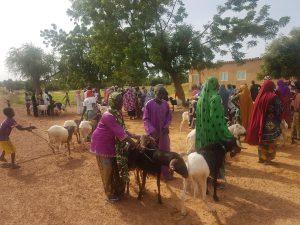Tabaski (or Aïd el-Kebir), called the “Festival of the Sacrifice,” is an Islamic holiday celebrated worldwide each year. It honors the willingness of Ibrahim (Abraham) to sacrifice his son as an act of obedience to God’s command. In commemoration of this historical event, a sheep is sacrificed. In Niger, where 95 percent of the population are Muslims, there is a huge demand for sheep at this time of year, offering a huge market opportunity for farmers.
Stakeholders across the value chain identified this period as a peak market opportunity during an Innovation Platform meeting in Niger organized by the International Crops Research Institute for the Semi-Arid Tropics (ICRISAT) as part of the activities of the Feed the Future Innovation Lab for Livestock Systems. To help farmers benefit from this market, the ICRISAT research project backstopped farmers with technical assistance to produce and purchase feeds in order to present good quality animals in time for Tabaski.

Farmers Volunteer
Through meetings and local recruitment, 191 farmers who own 400 small ruminants (mainly sheep) volunteered to participate. The project trained this group of farmers on fattening and animal health interventions (feeding techniques, vaccination and administration of dewormers and vitamins).
A feed bank was established and managed by farmers to ensure the availability of feed throughout the period leading up to Tabaski. Many farmers joined meetings, called ‘’The evening of livestock producers,’’ where they shared their experiences.

“We meet every Thursday to discuss our issues in livestock production and together find solutions,” said Mrs. Hamsatou, one of the farmers. “We visit each other, observe how everyone raises their animals, and now I realize what I was doing was wrong. When I have a concern, I share it with my co-farmers, and they give me their perspective. Since I joined the program, I have been getting better at managing my sheep. The project has helped us to produce marketable and higher value animals,” said Mrs. Hamsatou.
Marketplace Efficiency
At the end of the fattening period, five to ten days before Tabaski, the project team investigated potential buyers (mainly from Niamey, the closest big city) and linked them to village-based producers. Many farmers were rewarded with good prices at their village, which further saved the usual costs of transport.
Mrs. Hamsatou commented on this novel experience:
Normally, my husband brings my animals to the market, and he barely gives me my money. Even when he does, he gives me little money, like $US15, because I did not know the price of sheep at the market. Now I am the one who sells my animals. Tabaski is really a market opportunity for livestock farmers. I sold two sheep: one at $US200 and the other at $US120, this will provide important income that will cover a lot of expenses for my family.
When the next Tabaski arrives, the farmers who have had recent success selling their sheep will be well prepared to increase their income further.
 0
0
